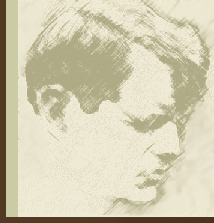
 |
Robert F. Kennedy | |||
|---|---|---|---|---|
| Home | Policy | Speeches | Multi-Media | |
| Biography | Conference | Assassination | Catalog | |
Extra Info
Bobby Kennedy, 40 years later Thu Jun 5, 2:11 AM ET LOS ANGELES (AFP) - Forty years ago, on June 5, 1968,
Robert F. Kennedy was brimming with the confidence of a young, charismatic
and liberal political star. He had just won the California Democratic primary, giving him a strong chance to win the party's presidential nomination, rising out of the shadow of his brother John F. Kennedy, the president murdered less than five years before. And in a split second, its was all over: a deranged Palestinian shot him dead in a Los Angeles hotel as he reveled in his victory. The assassination of Bobby Kennedy plunged the United States into deep trauma. It came in the wake of the devastating Tet offensive against US and South Vietnamese troops in Vietnam, which showed the US was not winning the war and forced then-president Lyndon Johnson, also a Democrat, to concede that he was too weak to seek the White House in that November's election. And it followed by two months the April 4 assassination of civil rights leader Martin Luther King in Memphis, Tennessee, which sparked riots across the country. Johnson's decision to bow out from the race opened the door to Kennedy to jump in the battle against liberal anti-war hero, senator Eugene McCarthy, and Johnson's more conservative vice president Hubert Humphrey that March. But Kennedy, who also took a stance against the increasingly unpopular war, had the advantage of youth -- he was just 42, his powerful name, his experience as attorney general under his brother, and then nearly four years as senator from New York. The primary in California, the country's most populous state, was key, and Kennedy came out of it with a big advance, putting him ahead of McCarthy and with the possibility of catching up with Humphrey. But what for many was the second Kennedy "dream" was again cut short. As he entered the kitchen of the Ambassador Hotel to thank supporters, Sirhan Sirhan pulled out a pistol and at close range shot Bobby several times, including once in the head. Kennedy died the next day, leaving behind wife Ethel, 10 children and an 11th soon to be born, and a clan and the nation in shock at yet another Kennedy tragedy.
The photograph of a young assistant chef, holding up the candidate's bloodied head as he lay on the floor, was seen around the world. Boris Yaro, then working for the Los Angeles Times, recalled in 1998 that he went not on assignment but as a fan to take pictures. "To me, Bobby represented what was left of the Camelot era of American politics, and I wanted him to win.
In the struggle to subdue Sirhan, Yaro himself grabbed at the gun before someone else took it away. He took his pictures and went back to the newspaper.
Forty years later, the desire for another "Camelot" has filled supporters of Illinois Senator Barack Obama, likened to the Kennedy brothers by some from the Massachusetts clan themselves. In January both John F. Kennedy's brother Senator Edward Kennedy and the slain president's daughter Caroline suggested Obama was his spiritual heir. But also, in what came to be seen as an ugly comparison, Obama's now-vanquished rival Hillary Clinton in May made reference to their close-quarters battle and the fact that the 1968 race changed radically when Bobby Kennedy was assassinated. The reference provoked outrage that Clinton was suggesting something nefarious, and she quickly apologized. Sirhan, a Christian-born Palestinian who first said he killed Kennedy over his support for Israel, but whose sanity was later questioned, was given a life sentence in a California prison, where he remains today. Brothers: The Hidden History of the Kennedy Years, book by David Talbot:
|
|||||||||
|
|||||||||
|
|||||||||
| www.bobby-kennedy.com is
a part of JFK Lancer Publications & Productions.
|
|||||||||